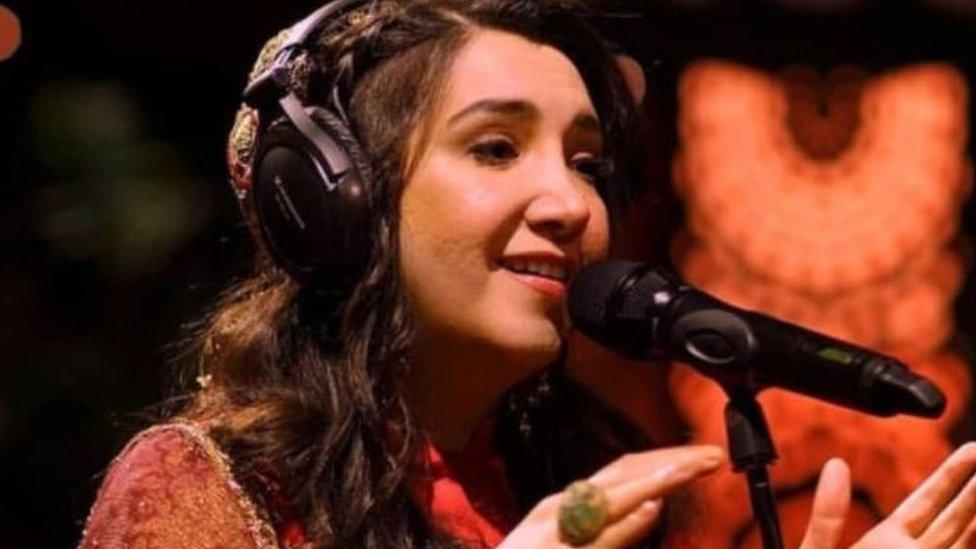The Pavilion: The Pakistani cricket show that charmed Indians in 2023
- Published
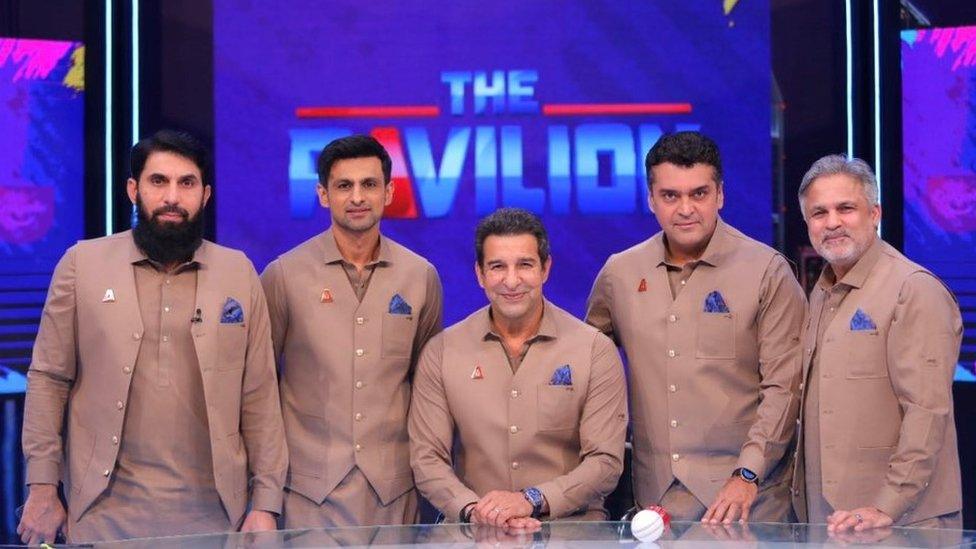
(From left) Misbah-ul-Haq, Shoaib Malik, Wasim Akram, host Fakhr-e-Alam and Moin Khan were part of The Pavilion's World Cup edition
India and Pakistan have long shared hostile relations which often impact cultural exchanges between the neighbouring countries. But a Pakistani cricket show aired during the 2023 World Cup managed to overcome these differences.
This was evident at the end of every match in the World Cup - held in October and November - when thousands of Indians flocked to YouTube to watch The Pavilion.
The show, launched in 2021, usually runs only during major cricket tournaments and features a stellar line-up of former Pakistan players. Its World Cup edition, which ended, external a day after the final between India and Australia, featured celebrated cricketers Wasim Akram, Moin Khan, Shoaib Malik and Misbah-ul-Haq.
Watching the show - with its well-articulated analysis interspersed with compelling anecdotes and good-natured ribbing - almost felt like spending time with a group of friends talking about cricket around a table.
And that's what The Pavilion was always meant to be, says Salman Iqbal - the owner of ARY media group, the production company which runs the show.
"We focused on keeping it conversational and light-hearted, and rely on experts to give their cricketing opinion but try not to overcomplicate anything," said Mr Iqbal.
"You wouldn't see negativity and toxicity in the show."
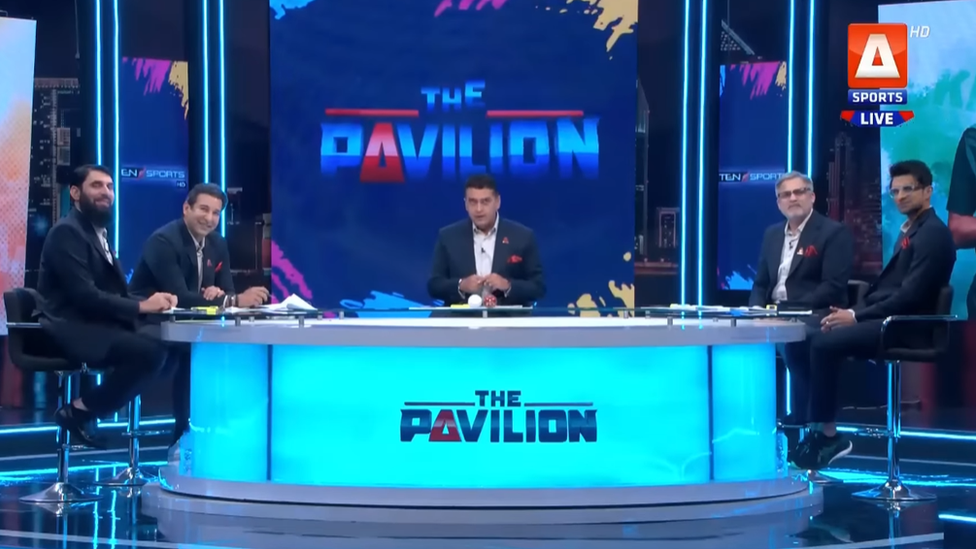
The latest edition of the show was aired during the 2023 World Cup
But the show's huge popularity in India still took him and others by surprise.
Several Indian cricketers, including former captains Kapil Dev and Sourav Ganguly, have appreciated its format. Indian journalist Rajdeep Sardesai, a fan of the sport, called it "arguably the best cricket show on the World Cup" because it had "no jingoism, no noise, just solid analysis and truth-telling by former players".
Many have compared The Pavilion's success with that of Coke Studio - a long-running Pakistani music programme that also has thousands of Indian admirers.
Akram - a legendary Pakistani fast bowler - told the BBC that The Pavilion was enjoyable for everyone because it was "just an honest show".
"We just played ourselves. A bit of fun, banter, jokes, stories and, of course, most importantly the cricket," he said.
India and Pakistan share an intense cricket rivalry, and both countries have been known to come to a standstill when their teams lock horns on the field.
But political tensions have meant that cricket often takes a back seat. The two teams haven't toured each other or played a bilateral series in several years.
This year, it was initially unclear if Pakistan team would even travel to India for the World Cup. They eventually did.
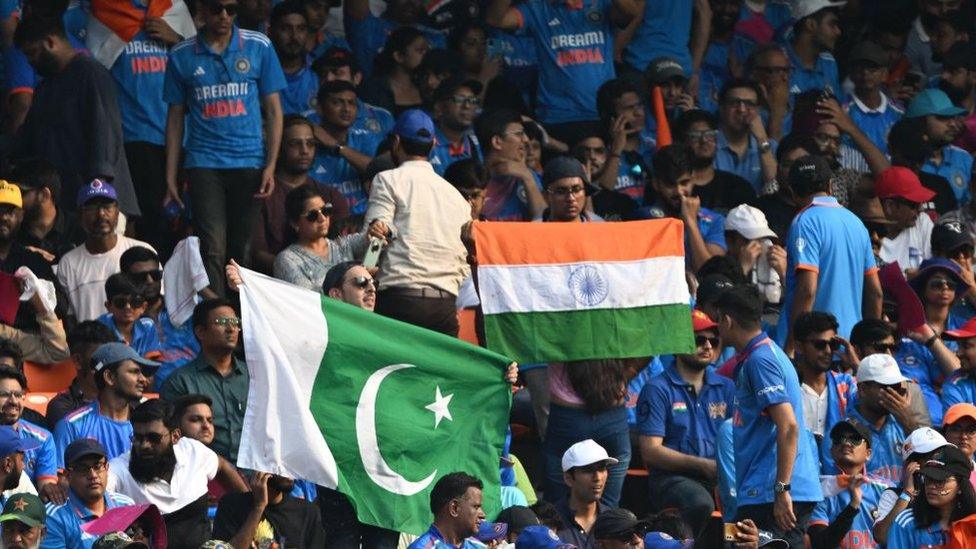
An India-Pakistan cricket match is one of the most intense sporting contests
Abhishek Mukherjee - head of content at the reputed cricket media house Wisden India - says it's difficult to explain India-Pakistan tensions to outsiders but adds that the love for The Pavilion is a testament to people in both countries who maintain a deep fondness for each other's culture.
During the World Cup, clips from the show were widely shared on social media in India, especially the ones in which the panellists praised Rohit Sharma's team.
One of the most popular episodes had Akram defending Indian bowlers after some in Pakistan accused them of cheating at the World Cup. "I want to have the same thing these guys are having," Akram said in reference to the critics, adding he would request them not to "open us to ridicule from the world".
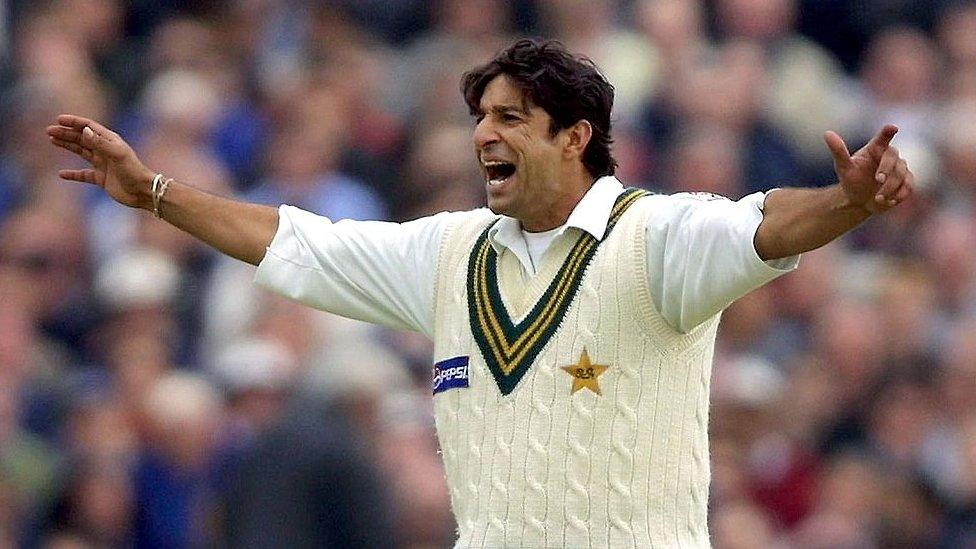
Former Pakistan bowler Wasim Akram is one of the most famous names in cricket
Mr Mukherjee says the show didn't attempt to malign any country, which was refreshing to watch.
"When they talked about Indian cricket, there was never any effort to bring down India," he said. "They were just discussing another team that was playing well.
Besides, the analysis on the show was "top notch", he added.
Other factors also helped the show become popular in India despite not being broadcast on a TV channel in the country.
The panellists spoke in English, Urdu and Punjabi - languages that many Indians also understand. The former players who appeared on The Pavilion were popular in India and their presence evoked a sense of nostalgia.
"I grew up in the 2000s. The players in the show - Misbah-ul-Haq, Wasim Akram, Moin Khan - were people I grew up fearing and respecting as an Indian fan," says Amrit Patnaik, who lives in India's Orissa state. "It was really nice to see the same players say such amazing things about India."
Mr Mukherjee says the show also filled a vacuum as there was no other comparable cricket show on Indian TV during the World Cup, despite the country hosting the tournament.
Coverage on Star Sports - the official broadcaster of the tournament - was very "India centric", he said.
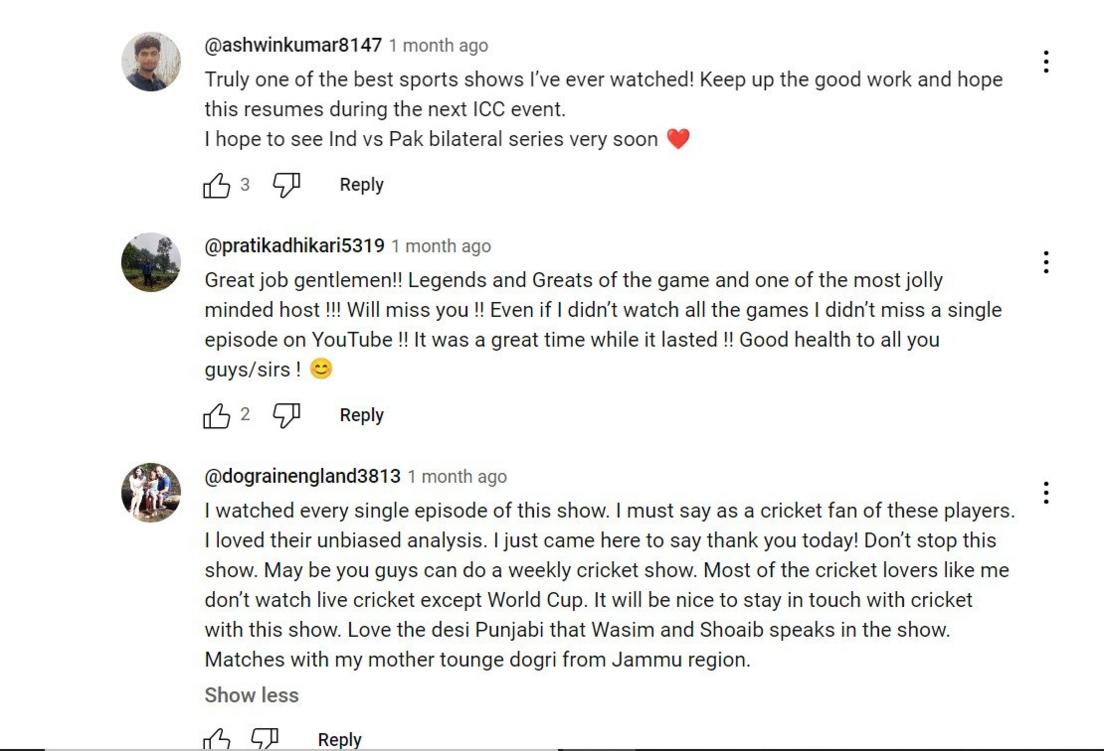
Many Indians have appreciated The Pavilion's coverage

The Pavilion is only the latest in a long line of cultural and sporting products that have been celebrated on both sides of the border.
Pakistanis have grown up on Bollywood films, while soap operas from that country are widely watched in India. Though both governments have restricted cultural exports in recent years, artistes from the countries have often collaborated on various projects.
The appreciation extends to cricket as well. Akram and former team-mate Shoaib Akhtar have appeared on Indian talk shows, while another Pakistani cricketer, Shahid Afridi, once said he got more love in India than at home.
It might be a cliché to say that sport has the ability to unite people. But in India and Pakistan, that still rings true, says Mr Iqbal.
"And for a Pakistani cricketing show to get this kind of appreciation in India is a great indicator of how cricket holds this immeasurable power to bring people together," he said.
BBC News India is now on YouTube. Click here, external to subscribe and watch our documentaries, explainers and features.

Read more India stories from the BBC:

- Published29 May 2022
